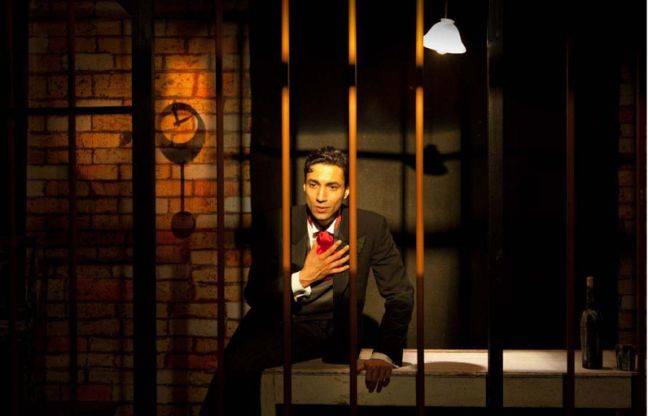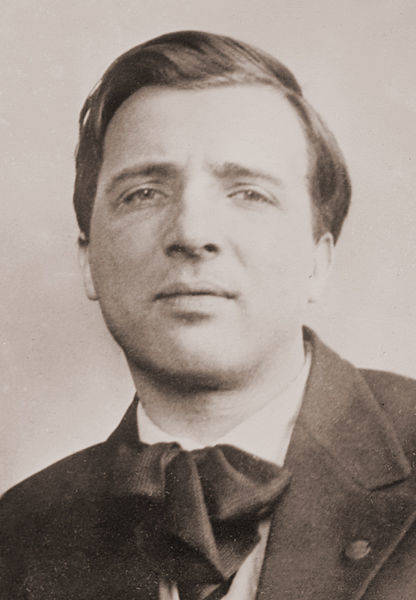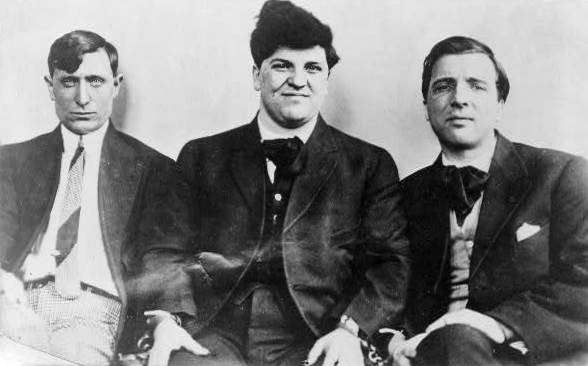The Walker's Auto-Da-Fè: The Words of Arturo Giovannitti on Stage
In 1920 two Italian immigrants living in Massachusetts, Nicola Sacco, a shoemaker, and Bartolomeo Vanzetti, a fish peddler, were arrested for murdering two men during the armed robbery of a shoe factory in South Braintree, MA. The two had no criminal records, but were known as outspoken anarchists and antiwar activists. Both men had good alibis: at the moment of the crime Vanzetti was selling fish in Plymouth, while Sacco was in Boston with his wife having his photograph taken. Yet several eyewitnesses identified them as the culprits.
Their arrest had coincided with the period of the most intense political repression in Americanhistory, the “Red Scare” and their case became a matter of national public attention.
During the trial Sacco and Vanzetti were disadvantaged by not having a full grasp of the English language and their witnesses were Italians who spoke English poorly, and their trial testimony, given largely in translation, failed to convince the American jury. The two were sentenced to death. (Fifty years later, on 23rd August, 1977, Michael Dukakis, the Governor of Massachusetts, issued a proclamation, effectively absolving the two men of the crime).
Just a few years earlier, in 1912 to be exact, Sacco helped with the defense of Arturo Giovannitti, an Italian immigrant who had been arrested on a dubious murder charge. His trial had a totally different outcome. It created quite a stir and attracted international interest, yet it is now forgotten while everybody knows who Sacco and Vanzetti were.
Arturo Giovannitti, the son of a pharmacist, was born in Ripabottoni, in Molise, on January 7th, 1884. After finishing his education and developing ideals of Liberty and Democracy, he emigrated to Canada. At the time he was deeply religious and he studied in several theological seminaries near Montreal. In 1904 he moved to New York City where he attended Columbia University.
Giovannitti did a variety of different jobs after arriving in America. He was also an active trade unionist and became the leader of the Italian Socialist Federation of North America. He joined the Industrial Workers of the World (IWW), and in 1911 he became the editor of Il Proletario, a radical Italian-language weekly.
So how did this young man, poet and trade unionist who emigrated to the New World full of hope get in trouble with the law? We must go back to the Bread and Roses strike in Laurence, MA, of 1912.
Using the words of Giovannitti's grandson, David Giovannitti, we can say that “The Laurence strike started spontaneously in response to a cut in the piece rate that workers earned and activists in the area quickly realized they would need assistance to fight the powerfull mill owners. The IWW were involved and various organizers were contacted. My grandfather was asked to come due to his English/Italian fluency and reputation as a rousing speaker – family lore has it that he was somewhat reluctant due to the risk involved, but my grandmother made it clear that he had no choice... as it turned out there was reason to be afraid. During the strike a woman, Anna Lo Pizzo, was killed and my grandfather and his fellow strike leader, Jospeh Ettor, were arrested for murder even though they were miles away at the time. They subsequently spent 10 months in jail under threat of execution but were finally acquitted when it became clear the entire case against them was a fabrication; my grandfather's speech to the jury became a much reprinted and celebrated document and even today his eloquence, both humble and defiant, is striking.”
Today, one hundred years after the trial, Italian director Stefano Sabelli of Teatro del Loto di Ferrazzano presents to international audiences the dramatic rendition of Giovannitti's Address to the Jury and of The Walker (a touching ballad written while he was in prison awaiting the final verdict). They have been combined in one piece by the title The Walker's Auto-Da-Fè.
Sponsored by Regione Molise and the province of Campobasso, the play has toured the east Coast during the month of November to have its final performance, organized by the Bread and Roses Centennial Committee, on November 23 in Lawrence, to celebrate the very day in which Arturo Giovannitti pronounced his self-defense speech one hundred years ago. “The Address to the Jury, which Giovannitti pronounced – and did not write,” Sabelli said “contains in itself all the elements of a grand theatrical play. A defense/monologue of so intense nobility that any important dramatist would like to write one just like it and any great actor would love to play it.”
Starring Diego Florio, The Walker's Auto-Da-Fè, forces the audience to relieve “that same event through stage fiction, and to put themselves somehow in the shoes of the Jury, which was selected to judge Arturo Giovannitti,” Stefano Sabelli stated in his notes to the play. The audience is indeed sitting in a cage with the protagonist and living with him every word, every glance, every single drop of sweat. Arturo/Diego walks around the spectators with no peace, like “a wounded, untamed lion.”
“I thought of an intimate set, capable to give some discomfort to the audience, surprising them,” Sabelli continued. “A traditional stage would have implied too much distance with the audience and a comfortable sitting would not have afforded the needed suspense to relive a fact belonging to history, not a work of fiction.”
“To stage this incredible trial and the verse of a man of such quality, moreover a fellow countryman from Molise, together with his extraordinary human and poetic vicissitudes, perhaps too early fallen into oblivion (especially in Italy) seemed to me both a duty and a necessity since the very first time I read it,” Sabelli concluded. It is time, one hundred years later, to get acquainted with Giovannitti again.







































i-Italy
Facebook
Google+
This work may not be reproduced, in whole or in part, without prior written permission.
Questo lavoro non può essere riprodotto, in tutto o in parte, senza permesso scritto.